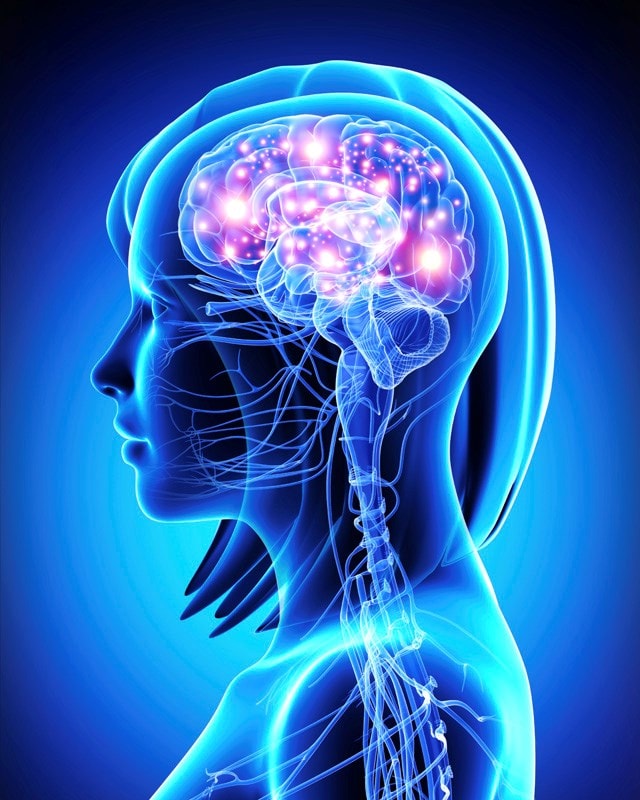Probiotics Affect Brain Function in Women
New research from the US has found that women who consumed yoghurt containing probiotic (see Probiotics Learning Lab) bacteria had an altered brain function to those who did not, as shown in brain scans both at resting state and during an emotion recognition task.
The small study, published in the peer-reviewed journal Gastroenterology, divided 36 women into three groups; one ate a probiotic yoghurt containing species of both the Bifidobacterium and Lactobacillus families of bacteria (Bifidobacterium animalis subsp Lactis, Streptococcus thermophiles, Lactobacillus bulgaricus, and Lactococcus lactis subsp Lactis) twice a day for four weeks, the second group ate a non-probiotic dairy product with a similar look and taste, and the other group had no product at all. Scans (functional magnetic resonance imaging) were taken before and after the four week long study, and the participants' brains were scanned both during a period of rest, and also during an emotion-recognition task, where women were asked to match pictures of people with angry or frightened faces to other pictures demonstrating the same emotions.

The women who had been taking probiotics showed altered brain activity in regions of the brain which are known to process not only emotions, but also sensations. For those of you familiar with the brain, the participants who had consumed the probiotic yoghurt showed a decrease in activity in the insula (part of the brain which processes internal body sensations) as well as in the somatosensory cortex (part of the brain which processes responses to touch - including reactions to pain or temperature sensations). Scans taken during the resting period showed that women in the probiotic group had more connectivity between the periaqueductal grey and the cognition associated areas of the prefronal cortex; whereas women in the control group showed greater connectivity of the periaqueductal grey to emotion and sensation-related regions. Phew!
What's interesting in particular is that researchers from UCLA were surprised to see effects in the brain occurring not only in the areas associated with emotions, but also those involved in sensory processing.
Dr Kirsten Tillisch, a lead author of the study at David Geffen School of Medicine, UCLA, pointed out that thanks to this research, which links the bacteria in the gut to the way in which our brain responds to the environment, "the old sayings 'you are what you eat' and 'gut feelings' take on new meaning." I think we would certainly agree! On that note, did you know that 95% of your body's levels of serotonin (which regulates your mood, amongst other things) are based in the gut? Read more interesting facts about your gut in the Probiotics Learning Lab.
Another point of interest is that the authors of the study, specifically the lead author Dr Emeran Mayer, mentioned studies which have shown that the foods we eat can alter the composition of the gut flora, for example those with diets high in vegetables and fibre have a different composition to those who eat a 'more typical Western diet' which tends to be higher in carbohydrates and fat. Likely causes of this association include the fact that prebiotics (visit the Probiotics Learning Lab for more information), found in certain vegetables such as leeks, Jerusalem artichokes, and onions; create a favourable environment for probiotics to grow in; and on the other hand, carbohydrates and sugars can encourage the growth of bad bacteria in the gut.
Scientists have appreciated for some time now that the brain sends signals to the gut - this is the reason that feeling nervous about a presentation you have to give can trigger unwanted digestive issues - but this research (although a small study) is a pioneering human study, suggesting that the link can work the other way round; that the gut can send signals to the brain. As Tillisch put it, 'Our study shows that the gut-brain connection is a two-way street.'
This fascinating study was sponsored by Danone Research, and we welcome and look forward to further, larger studies in the area.
For more stories about the potential link between the gut and the brain, read Could prebiotics help with anxiety? and Two probiotic strains show more promise for mental health.
References
- University of California, Los Angeles (UCLA), Health Sciences (2013, May 28). Changing gut bacteria through diet affects brain function.
- Image credit: reclaiming.com/content/node/210
Popular Articles
View all Mental Health articles-
Mental Health13 Feb 2024


